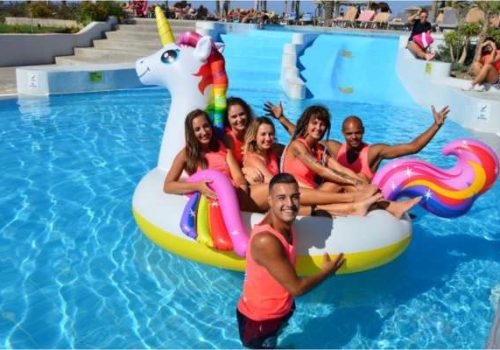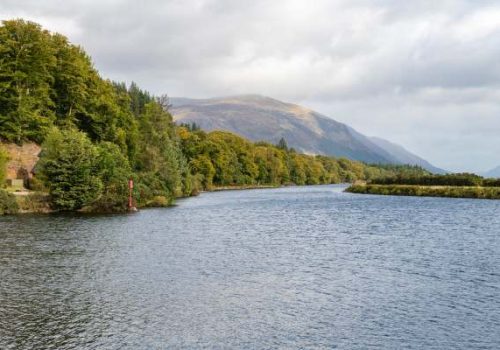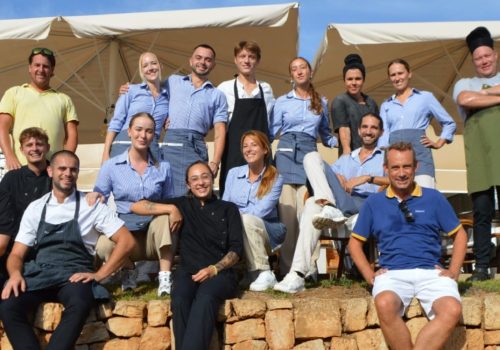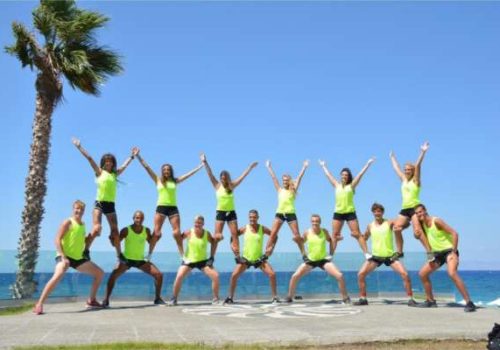Living and Working in Slovenia
Information & guidance about seasonal jobs in Slovenia
Slovenia, a small yet stunningly diverse country in Central Europe, is known for its breathtaking landscapes, rich culture, and high quality of life. With its thriving economy, welcoming communities, and affordable cost of living, Slovenia has become an increasingly attractive destination for expats. Whether you are drawn to the bustling streets of Ljubljana, the tranquility of the Julian Alps, or the Mediterranean charm of the Adriatic coast, Slovenia offers a unique blend of opportunities and lifestyle. This comprehensive guide explores living and working in Slovenia, covering employment prospects, salaries, accommodation, and everyday life.
Seasonal jobs in Slovenia
We don’t have any jobs matching this search. Below you’ll find a selection of our most popular vacancies!
- Adventure jobs, Hotel jobs, Tourism
- Bulgaria, Croatia, Egypt, Greece, Italy, Spain, Turkey
- Hotel jobs, Tourism
- Cyprus, Greece, Spain
- Hotel jobs, Tourism
- Greece
- Chef & Cookery, Hotel jobs, Tourism, Waitress-Waiter
- Spain
- Hotel jobs, Tourism
- Cyprus, Greece, Spain
Working in Slovenia
Working Conditions in Slovenia
Slovenia provides a well-structured and employee-friendly work environment, aligned with European Union labor standards. A standard workweek is 40 hours, typically spread over five days, with working hours from 8 am to 4 pm or 9 am to 5 pm. Employees are entitled to 20 days of paid annual leave, with additional days added for public holidays, of which Slovenia has 13 each year.
Labor laws in Slovenia protect workers, ensuring fair wages, regulated working hours, and job security. Many companies, especially in industries like technology and finance, are adopting flexible hours and remote work options, making Slovenia an appealing destination for professionals seeking a balanced work-life dynamic.
The workplace culture in Slovenia emphasizes efficiency, punctuality, and collaboration. While Slovenian workplaces are generally formal, relationships with colleagues tend to be friendly and supportive. Proficiency in English is often sufficient for international companies, but learning Slovenian can greatly enhance career prospects and integration into the local community.
Job Opportunities in Slovenia
Slovenia’s growing economy and strategic location make it a hub for industries such as technology, manufacturing, healthcare, education, and tourism. The country has a highly educated workforce, and its economy benefits from strong ties to neighboring countries like Austria, Italy, and Germany.
The IT and tech sectors are expanding rapidly, with companies seeking professionals in software development, cybersecurity, and data analysis. Slovenia is also home to innovative start-ups, particularly in Ljubljana, making it an excellent destination for entrepreneurs and tech-savvy expats.
The manufacturing and industrial sectors are key drivers of the economy, particularly in automotive production, pharmaceuticals, and green energy technologies. For expats with expertise in engineering or project management, opportunities in these fields are abundant.
Slovenia’s healthcare system consistently ranks among the best in Europe, creating demand for skilled medical professionals. The education sector also provides opportunities, with international schools, universities, and language academies frequently hiring English-speaking educators.
Tourism is another significant employer, particularly in Bled, Piran, and the Triglav National Park. Seasonal work in hospitality, guiding, or adventure tourism is widely available, especially during the summer and winter months.
Networking is critical for finding jobs in Slovenia. Platforms like LinkedIn and local job portals such as Mojedelo.com and Slovensko delo are valuable resources for job seekers. Attending professional events and engaging with expat communities can also open doors to new opportunities.
Salaries in Slovenia
Salaries in Slovenia are competitive within the region, though they may be lower than in neighboring Western European countries. The average monthly gross salary is approximately €2,000, with variations depending on industry, experience, and location.
- IT professionals and engineers typically earn between €2,500 and €4,000 per month.
- Finance and consulting roles pay around €2,200 to €3,500 monthly.
- Customer service and administrative positions offer salaries ranging from €1,200 to €1,800.
While salaries in Slovenia might not match those in Austria or Germany, the lower cost of living allows residents to maintain a comfortable lifestyle. Additionally, employers often provide benefits like meal allowances, transportation subsidies, and performance bonuses.
Income Tax in Slovenia
Slovenia has a progressive income tax system, with rates ranging from 16% to 50%, depending on income levels. Social security contributions, covering healthcare, pensions, and unemployment benefits, are also deducted from salaries. The total employee contribution typically amounts to around 22% of gross income.
Expats working in Slovenia must register with the Tax Administration of the Republic of Slovenia and obtain a tax identification number. Slovenia has double taxation agreements with numerous countries, ensuring expats do not pay taxes on the same income in multiple jurisdictions.
Working Culture in Slovenia
The working culture in Slovenia blends professionalism with a strong emphasis on work-life balance. Employees are encouraged to take regular breaks, and overtime is generally discouraged. Punctuality and reliability are highly valued, and meetings are often structured and agenda-driven.
Networking is important in Slovenia’s professional landscape. Building relationships with colleagues and clients is key to long-term success. Workplaces in industries like IT and media are increasingly adopting informal practices, including flexible hours, remote work, and casual dress codes.
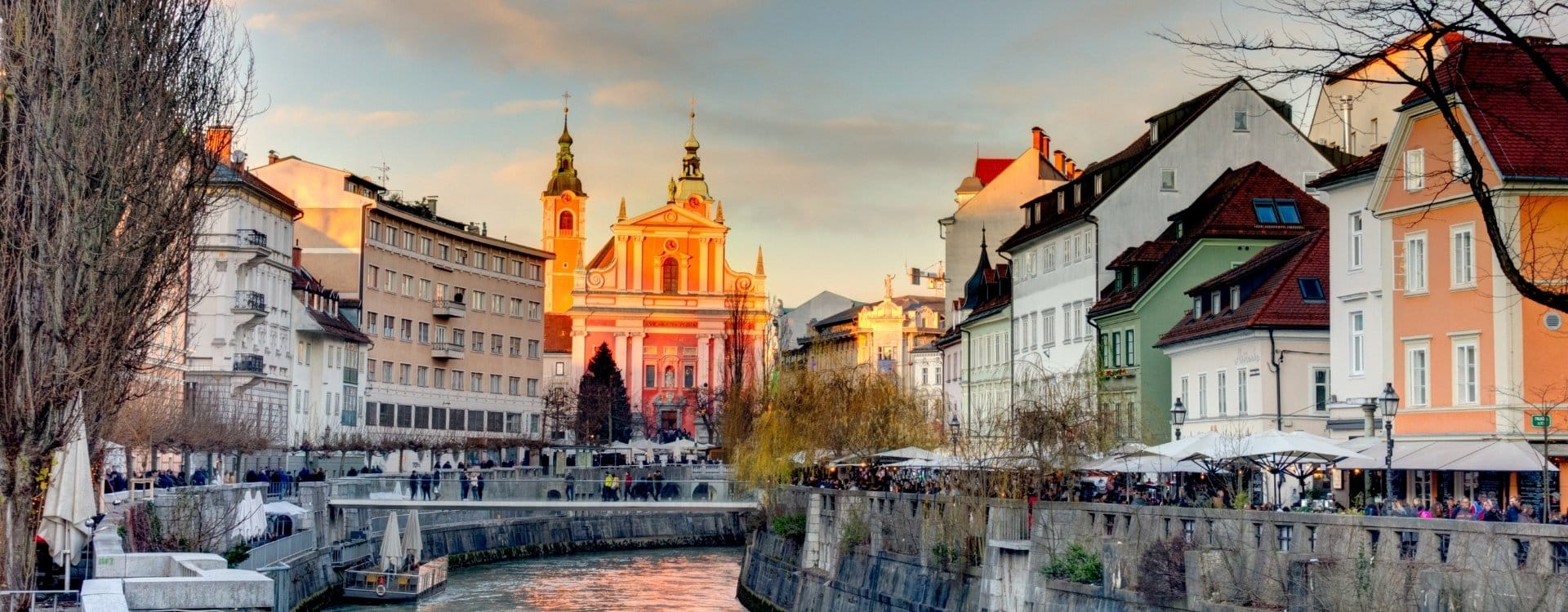
Living in Slovenia
Benefits of Living and Working in Slovenia
Slovenia offers an exceptional quality of life, with a combination of natural beauty, modern infrastructure, and a welcoming culture. The country’s small size means that everything is accessible, from the lively capital city of Ljubljana to the serene shores of Lake Bled or the Adriatic coast.
The healthcare system is excellent, providing affordable and high-quality medical care to residents. Slovenia’s central location in Europe also makes it an ideal base for travel, with easy access to neighboring countries like Italy, Austria, Hungary, and Croatia.
The cost of living in Slovenia is lower than in many Western European countries, making it an attractive destination for expats. With its rich cultural heritage, clean environment, and strong community spirit, Slovenia is perfect for families, young professionals, and retirees alike.
Accommodation in Slovenia
Accommodation in Slovenia varies by location, with Ljubljana being the most expensive city. A one-bedroom apartment in the city center costs between €600 and €1,000 per month, while similar apartments in suburban areas cost around €400 to €700. In smaller cities like Maribor or Celje, rents are even lower, averaging €300 to €600.
Shared apartments are common among students and young professionals, with monthly costs starting at €200 per person. Utilities, including electricity, heating, and water, add an additional €100 to €200 monthly.
Expats often use platforms like Nepremičnine.net or work with local real estate agents to find suitable housing. Landlords typically require a deposit equal to one or two months’ rent.
Cost of Living in Slovenia
Slovenia offers a reasonable cost of living compared to other European Union countries. A single person can live comfortably on a monthly budget of €1,200 to €1,800, depending on lifestyle. Key expenses include:
- Groceries: Monthly grocery bills range from €200 to €400, with affordable options at supermarkets like Mercator and Spar.
- Dining Out: Eating out is reasonably priced, with a meal at a mid-range restaurant costing €10 to €20. Traditional Slovenian dishes like žlikrofi (dumplings) and potica (nut roll) are must-tries.
- Public Transport: Slovenia’s public transport system is efficient and affordable, with monthly passes in Ljubljana costing €37.
Where to Live in Slovenia
Ljubljana, the capital, is the most popular choice for expats, offering a vibrant cultural scene, excellent career opportunities, and modern amenities. The city’s neighborhoods, such as Šiška and Bežigrad, cater to different lifestyles, from young professionals to families.
Maribor, Slovenia’s second-largest city, is quieter and more affordable, with a strong sense of community. Koper and Piran, located on the Adriatic coast, offer Mediterranean charm, while cities like Bled and Bohinj are ideal for nature lovers.
Public Transport in Slovenia
Slovenia’s public transport system includes buses and trains that connect major cities and towns. In Ljubljana, a monthly bus pass costs €37, and bike-sharing services like BicikeLJ are popular for short commutes.
For intercity travel, trains and buses are reliable and affordable. Slovenia’s small size means you can reach most destinations within a few hours. For international travel, Ljubljana Jože Pučnik Airport offers direct flights to numerous European destinations.
Eating in Slovenia: Restaurants and Food Costs
Slovenia’s culinary scene is a delightful blend of Austrian, Italian, and Balkan influences. Traditional dishes like kremšnita (cream cake) and kranjska klobasa (Carniolan sausage) are widely enjoyed.
Dining out is affordable, with casual meals costing around €10 to €15 and fine dining experiences starting at €40 per person. Farmers’ markets, like the Central Market in Ljubljana, offer fresh produce, meats, and cheeses at reasonable prices.
Slovenia’s Nightlife
Slovenia’s nightlife is vibrant yet relaxed, with something for everyone. Ljubljana’s city center is home to trendy bars, live music venues, and nightclubs. The Metelkova District is particularly popular for its alternative scene and cultural events.
In coastal towns like Piran and Koper, summer nightlife revolves around beach bars and open-air concerts. Seasonal festivals, such as the Ljubljana Festival and the Bled Days, showcase Slovenia’s love for music, art, and celebration.
Weather in Slovenia
Slovenia experiences a diverse climate, with Alpine, Mediterranean, and continental influences. Summers are warm, with temperatures ranging from 25°C to 30°C (77°F to 86°F), while winters are cold, averaging -5°C to 5°C (23°F to 41°F) in most regions.
Spring and autumn are mild and ideal for outdoor activities, such as hiking in the Triglav National Park or exploring vineyards in the Karst region. Snowfall is common in the mountains, making Slovenia a popular destination for skiing.
What Not to Miss in Slovenia
Slovenia is a treasure trove of natural and cultural wonders. Must-visit attractions include Lake Bled, Postojna Cave, and the Ljubljana Castle. Outdoor enthusiasts will love the Soča Valley, known for its turquoise rivers and adventure sports.
Seasonal events, such as the Kurentovanje Festival in Ptuj and the Ljubljana Christmas Markets, provide a glimpse into Slovenia’s rich traditions. The country’s compact size makes it easy to explore its many highlights, from Alpine peaks to the Adriatic coast.


